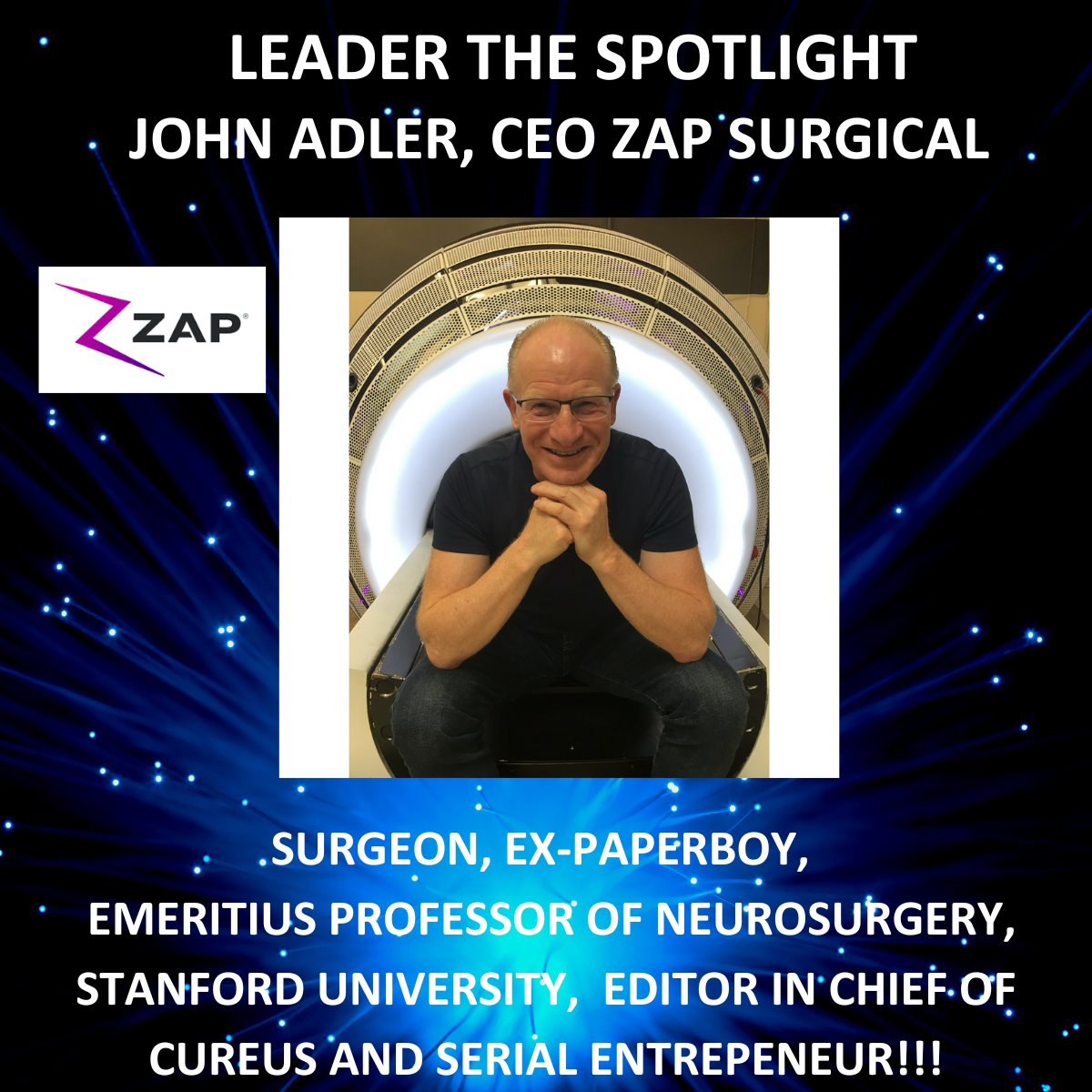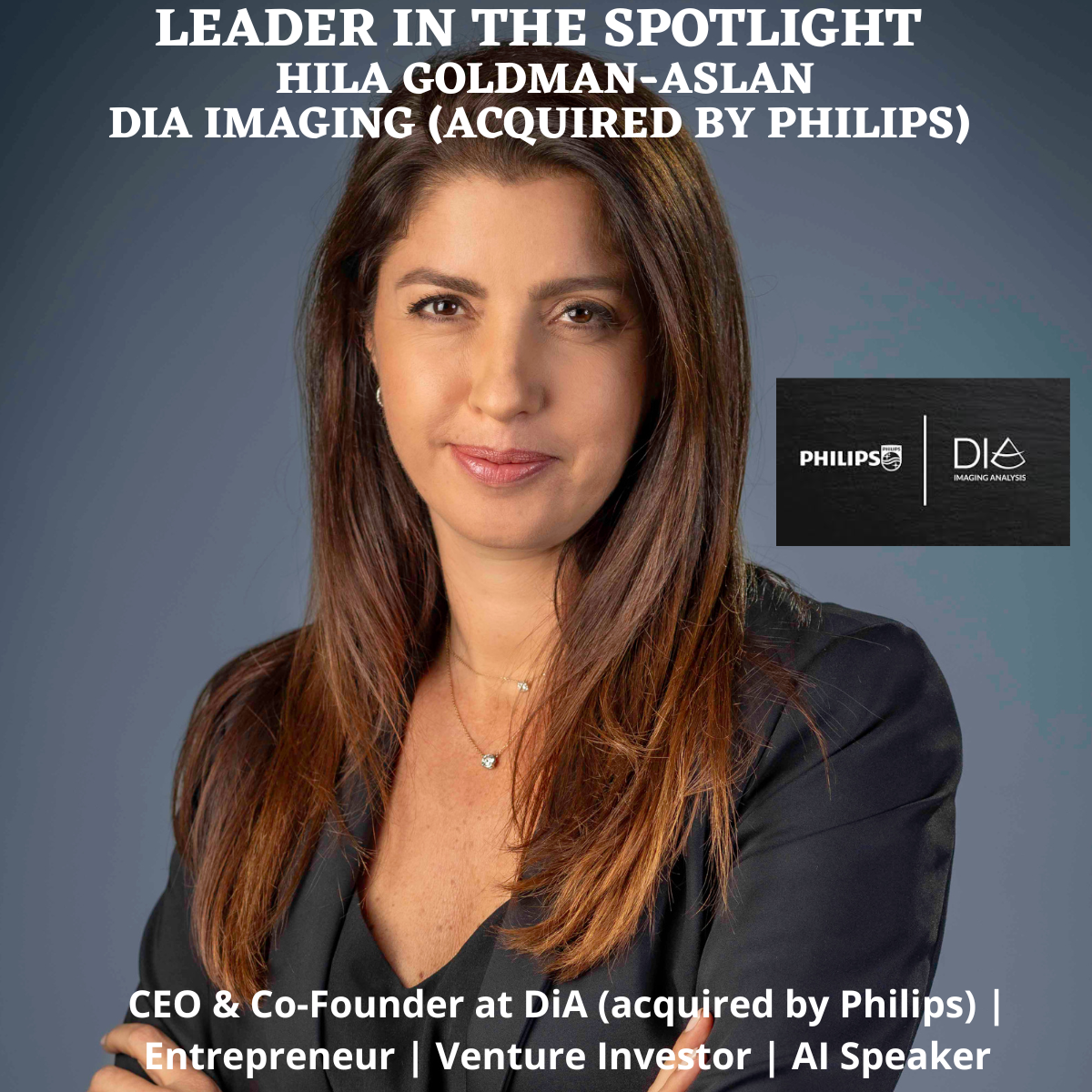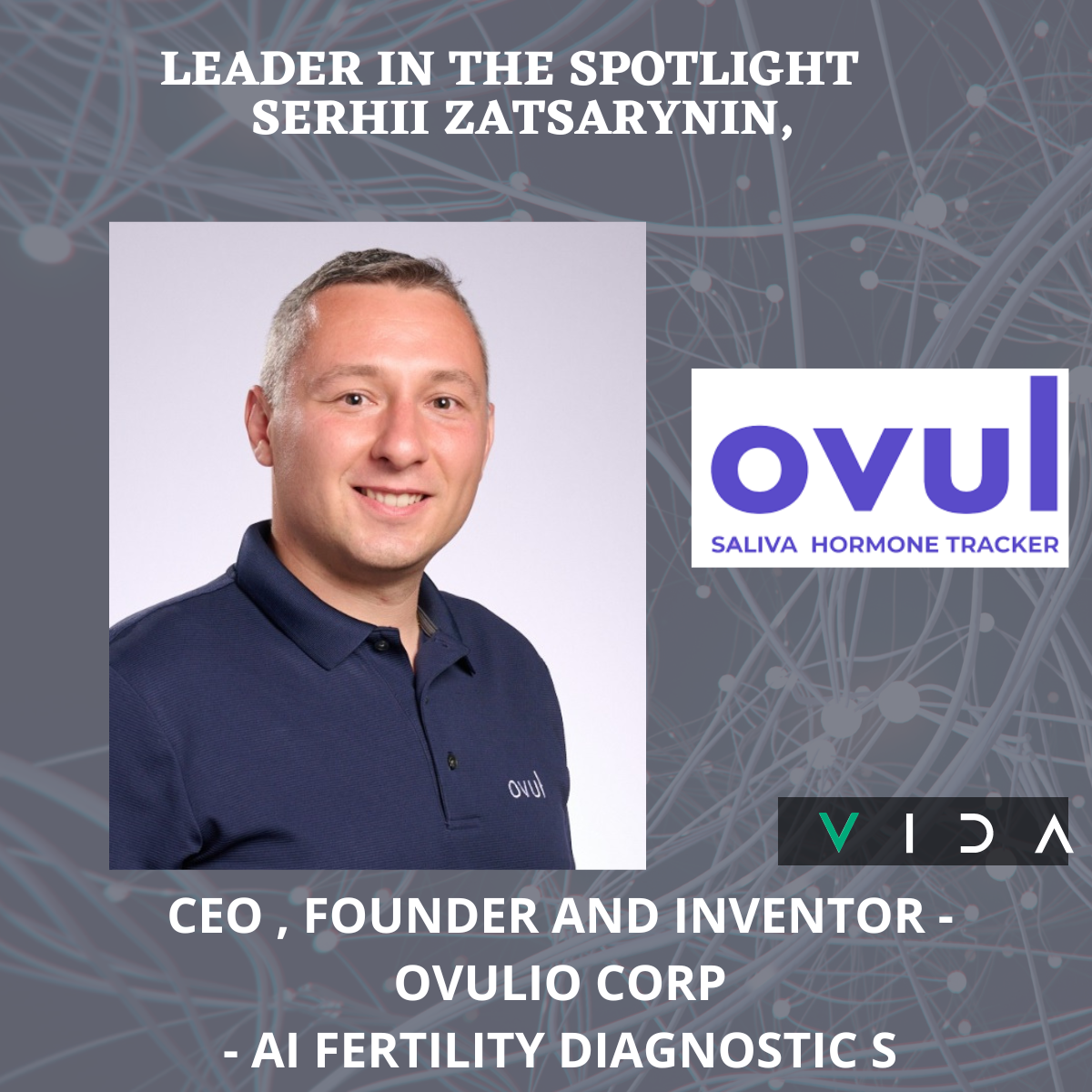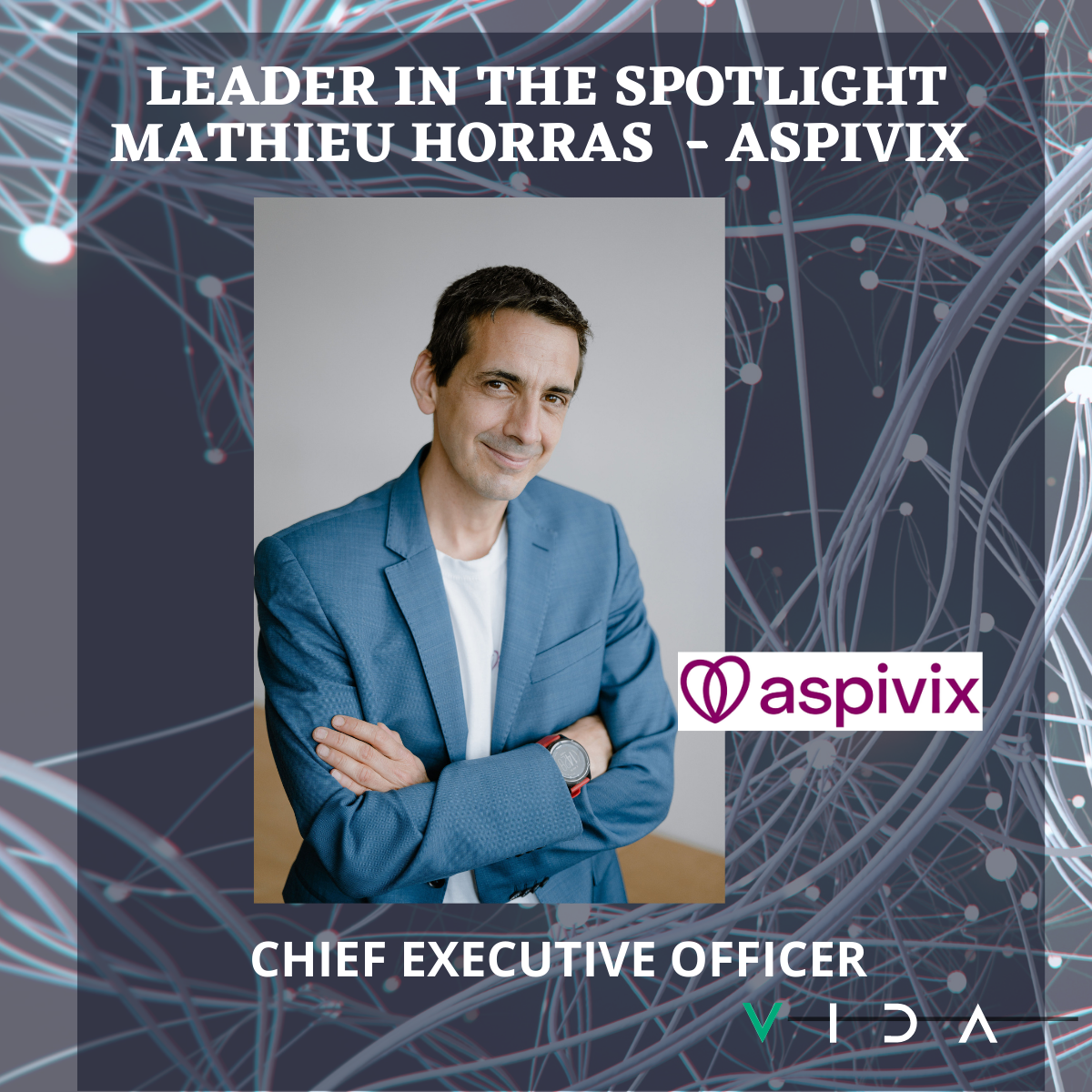
POSTED BY
Liz Moyles
Stuart is immensely well known in the field of orthopedics and robotics, and he is one of the most respected CEOs in this space. He is understated, can be quite self-deprecating at times, completely low key but tremendously impactful in his actions and his ability to motivate others to believe in him and Think Surgical. Over the years we have exchanged messages, so it was a real pleasure to get to know Stuart better, to hear his fabulous Scottish accent which is still evident despite having lived in the US for so long and to learn about the picture of his “hole in one” at a famous golf course in the US !
Stuart also shared with me the moment Stryker signed a $1.65Bn deal with Mako
and the less than positive reaction which the market had to the news – and his
involvement in this decision. I imagine that was one heck of a scary moment to live
through but live through it he did.
Being a CEO takes hard work, nerves of steel and a lot more including some key ingredients which Stuart shares here, but as he says “this is the best job I have ever had!”.
So less from me and over to Stuart ……….
- Stuart, by now you will have seen I love to lead into these interviews by asking what attracted you to this industry. Was it pure chance or a childhood dream? What did you do at university?
I graduated University of Strathclyde in Glasgow with a passion for brand management. Despite my best efforts, I couldn’t find a company willing to take me on straight out of university and ended up in a pharmaceutical sales role. As it turned out, I was quite good at it, but always saw this as a stepping stone into a marketing career.
- So, you had your first stint in Pharmaceuticals which is immensely different to where you are now. How did the transition to MedTech come about?
In 1995 I applied for a position at Pfizer. It was in their hospital products group working for a division called Howmedica. I really had no idea about orthopedics at the time but very soon into my role I realized that the world of medtech was more interesting than pharmaceuticals. I loved that the surgeons wanted company representatives in the OR and that you could see the results of your work when they used your products. It is a much more tangible industry and felt like a better fit for me.
- What happened next – did you achieve your dream of working in Product Management and Marketing?
In 1997 I was promoted into a brand management role and thought that I had achieved my ultimate career goal. I had my dream job and I loved it! But less than a year later, Pfizer decided to divest the hospital products group and Howmedica was acquired by Stryker in 1998. It was quite a shock because Stryker was relatively unknown in Europe and Howmedica was the market leader. But it was the best thing that could have happened. Stryker has a strong growth culture and I quickly decided that this change would be good for the company and for me personally, so I embraced it fully.
- And then I understand you got asked to go to Australia and Switzerland before settling in the US. What did you like about the US and Stryker?
The assignment to Australia in 2002 was a real inflection point in my career. It was initially a short-term international assignment but turned into a 4-year stint. After that I spent 4 years working at the European marketing HQ in Switzerland. Then in 2009 I was approached about a move to the global orthopedics HQ in New Jersey. This is how Stryker does things. They keep stretching people into bigger and bigger roles. It really is a great company to work for.
Moving to the US was an easy decision, at least for me. It was an opportunity to take my local and regional experience and expand into a global leadership role. It was also a chance to play in the big league. The US represents about 50% of the global orthopedic market. It was also a very pleasant surprise to find that norther NJ offers a good lifestyle. It isn’t Sydney or Montreux, but my family liked what they saw in Bergen County.
- You had a great career with Stryker, working across numerous specialisms and across many countries and continents. What was your favourite role / challenge?
It’s hard to say. From a personal and family perspective, Australia was a wonderful experience. Getting that first marketing position felt like such a huge achievement but seems like such a long time ago. Moving to the US felt out of reach, until one day I was asked to make the move. Being promoted to Marketing VP seemed like the ultimate career achievement, and I never once imagined I would end up running one of the biggest divisions at Stryker. Until it happened!
- That is an unbelievable career trajectory and obviously I am very proud of you coming having achieved what you have done with your Scottish roots. What did you think when you were asked to work with Mako and the robot? I know you were responsible for the acquisition of Mako for an enormous $1.65B. That is a huge deal to make and a lot to be entrusted with. How did making that deal feel to you?
I was part of the executive steering team that led the project to acquire Mako. It was
all very exciting as we worked on the deal until the due diligence read out. The CEO
stopped me at the end of my presentation and in front of everyone, “do you support
this deal and the price tag?”. My world stopped for what seemed like and age before
managing to blurt out “yes.”
- How did the market receive the news?
Well not quite as I expected that’s for sure. The deal was made public in September 2013 and the day it was announced Stryker stock dropped by something like 5-7%. I was at a meeting in Singapore that day, and one of our big US surgeon customers asked my “which idiot thought this was a good idea?”. We still laugh about that to this day, but it really sums up the market sentiment about the Mako deal at the time.
- What led to you leaving Stryker and why didn’tyou just handg up your shirt and tie and enjoy golf or other activities ?
I hoped to become the next Group President of Orthopedics at Stryker, when my boss retired, but it wasn’t to be. I didn’t feel ready to do nothing as I felt that I had more to achieve in my career. When I was leaving Stryker, they asked me to extend my non-compete, and I was happy to agree to that. I wanted to take my time before jumping into my next role. I had been with Stryker for 24 years. My wife and I had lots of travel plans but a few months later the pandemic hit. So, we bought a dog and hunkered down. I wasn’t as bad as I thought I would be at relaxing and not doing a 24/7 job. I actually quite enjoyed it , although not enough to do nothing. I was offered the opportunity to work on several boards which kept me connected to the business world.
- So, what led to Think Surgical, and did you feel daunted at all about becoming a CEO?
Soon after leaving Stryker, I was approached by THINK Surgical. All I knew about the company was about their old robot and I wasn’t interested in the slightest. Besides, I had a long non-compete restriction. They were persistent and shared with me that they were working on a hand-held robot which I found intriguing. When I saw it, my impression of the company and the opportunity changed completely.
This is quite possibly the first to market of the next phase of robotic technology. This was an opportunity to be at the forefront of the market again. But I still had a long non-compete. They decided to wait out the non-compete and offered me the CEO position as soon as my non-compete expired.
No, I wasn’t daunted about the transition to CEO. I was excited to get started. But I am a first time CEO, and I am still figuring some things out. I have to say though, that I love this job. It is by far the best job I’ve ever had. I wish I had done this sooner, but I still have plenty of time to enjoy it.
- You said recently, that you had spent a lot of your career viewing implant companies as competitors, but that you now embrace them as partners. What’s brought this change about?
It is funny to have David Dvorak as the Executive Chairman on the THINK board. He and I spent so many years competing when he was Zimmer CEO. Stryker and Zimmer are the top two companies in orthopedics and fierce competitors. I have to say, we have a great working relationship. Our experiences and styles are so different, yet very complimentary. We both share a belief that the dominance of the big companies isn’t good for the customer, and we are committed to playing a part in stimulating more innovation and competition in the ortho market.
The business model at THINK is implant-agnostic. That means we want to support as many implant brands on our robot as possible. We believe that having the freedom to choose the best implant for each surgeon, or each patient, is a more customer centric and patient centric model. We are not an implant company. We are not trying to sell more implants. We want the customer to have as much choice as possible. That means that every implant company is a potential partner for THINK. Having spent my entire career competing with these companies, it is interesting to now be engaging them all as potential customers.
- What are the next audacious goals for Think Surgical?
Our goal is to eventually attract all implant brands onto our platform. This may be an ambitious goal, but I think the customers will eventually demand it.
- I have immense respect for you as a person and as a CEO and you would be someone I would see many people turning to for advice, but who are some of the people in your career who you use as a sounding board or who you admire most? I know there will be many but is there someone or a few people who have been with you throughout…. what do they do that makes a difference?
There are three people that have made a big impact on me throughout my career. The first, Andrew Fox-Smith, believed in me before I really believed in myself and gave me the most important growth assignments in my career. He allowed me to learn and grow through challenging experiences.
The second, Andrew Green, became an influential coach and mentor during my formative years when I was trying to work out what leadership was all about. He helped me become more self-aware and a student of leadership.
The third, Kevin Lobo, showed me how to achieve more by trying less. He is the ultimate example of effortless leadership. People just want to do more for him without having to be asked or pushed. He helped me understand that motivating others is much more powerful than directing them. I still find myself wondering what each of them would do or say in any situation.
- What advice would you give to someone who is looking to enter this space, whether that is a fresh graduate straight out of university, or someone looking to transition their career?
My advice to anyone earlier in their career isn’t industry specific. I have learned three things in my career that I think are important lessons.
First, find a company that is a good fit for you. That means a company that values the same things you do, and a company that rewards the things that are important to you. If you don’t feel that way about the company you are with, don’t waste your time fighting it, go find one that is a better fit. You will be happier, and more successful when you do.
Second, embrace new experiences at work. Whether this is a relocation, a special project, or a new team assignment. These are opportunities to learn and grow, and to demonstrate your value to the company. They wouldn’t be asking you to do it unless it’s important. Embrace change, don’t fight it, or hide from it. Show the world what you are capable of rather than asking “what’s in it for me.”
Third, be very honest with yourself. Figure out what you are good at and accept the things you are not so good at. Learn to play to your strengths, you will be more successful and more fulfilled in your career. It’s much more fun to do the things that come naturally to you than to struggle with the things that don’t. Know yourself and be yourself. Others can tell when you are being you, and when you are trying to be someone else.
Also, remember that your career is only one part of your life. I didn’t learn this lesson till quite late but at least I got there in the end!
Wonderful advice Stuart. I think more and more I am hearing CEOs say your career is not your whole life. You have to be happy and fulfilled in both ideally to the best version of yourself and I know that your leadership style incorporates embracing your team as people with families, people with problems outside of work , people who you care for, and that is why your team are so loyal to you.
Thank you for sharing this insight with us all, because there is a lot here to inspire and learn from.



